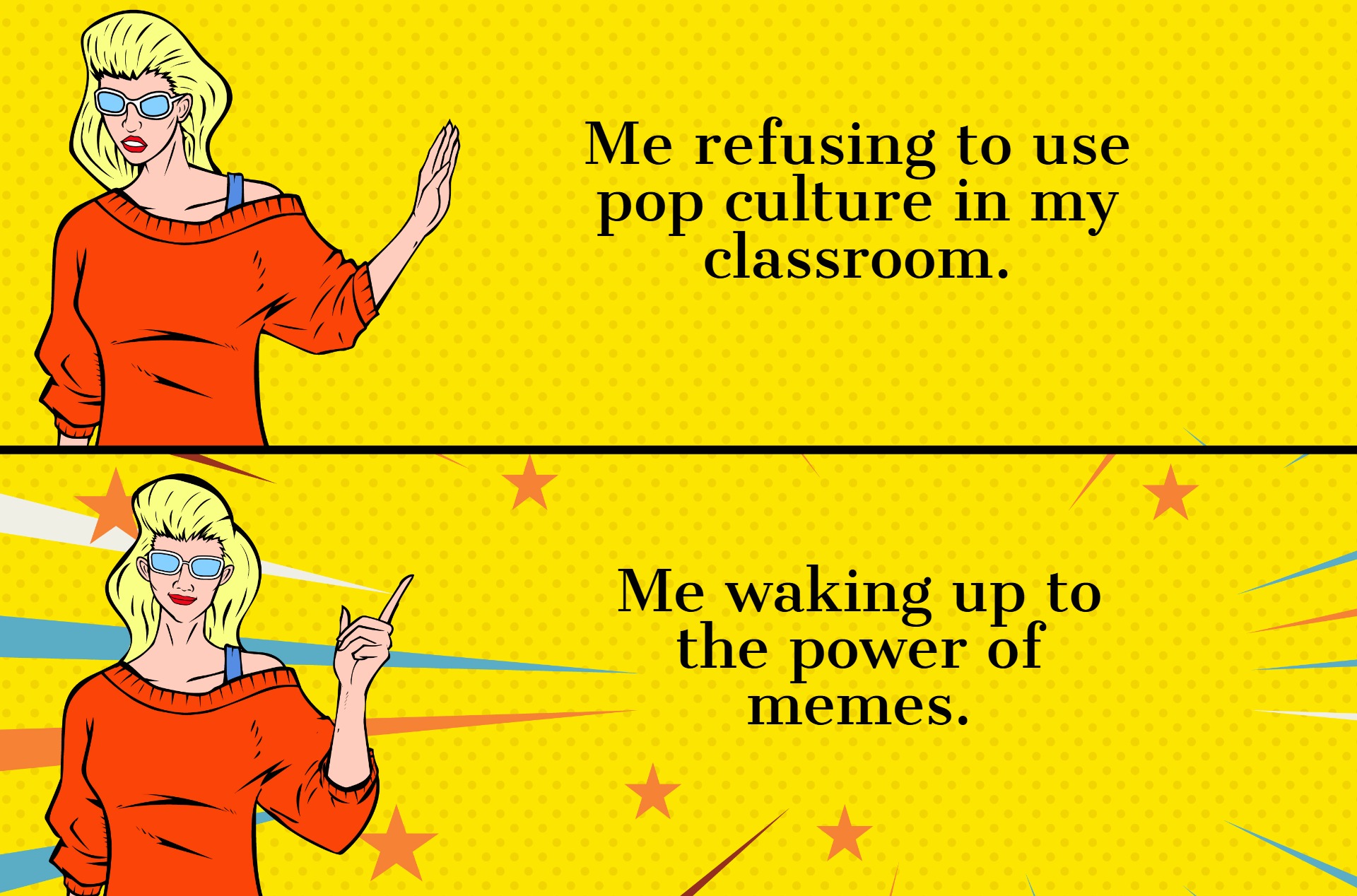Some things I’ve learned going back to the classroom
A university principal reflects on his efforts to stay active as a professor.

As an academic administrator whose typical day is filled with meetings, speeches, social events and a good deal of time away from campus, I often worry about losing touch with the core business of the university: teaching and research (which are of course why I, and any other academic administrator, became a grad student, then faculty member in the first place). Faculty colleagues frequently assume that this happens inevitably when someone rises beyond the level of a department head or dean. While that’s a bit of a stereotype, it is true that the more senior the role, the more demanding – and irregular – are its time commitments. It is not altogether surprising that many senior administrators do not teach at all.
However, even 20 years into an administrative career that I initially saw as a short-term detour (“OK, I’ll do that associate dean gig for three years”), it’s been important to me to remain active as a history professor. The research side has frankly been easier to keep up with than the teaching. Although I no longer have the luxury of spending a month every summer hunting through obscure English record offices, as I did early in my career, there has been no time in the past 20 years when I have not been engaged in one or more writing and research projects, a couple of which went from conception to publication during my eight years as principal of my current university. And progress in the availability of online sources has made a good deal available on my desktop that was only available in person in the ’80s and ’90s.
Teaching is tougher to fit in. It’s relatively easy to put off an editor or collaborator 9,000 kilometres away, or even a publisher (though I rarely put myself in a position where that is necessary). But one can’t simply not show up to class because a government minister has asked for a meeting with all executive heads that day, or a major donor has come to town for that afternoon only. Want your midterms back? Sorry, I am in Asia on university business for the next 10 days.
My solution in most years has been to help out in the graduate program, usually in a co-supervisory or second-reader capacity with my two British-history colleagues, and to do a modest amount of undergraduate teaching, without the responsibility for grading or coordination, in the very same first year course that I took as a student in my current department over four decades ago. Just about every January I drag out my Hobbes, Locke and Rousseau and have fun with the new students in five or six different tutorial sections.
A couple of times, however, I have actually taught an entire one-term course with sole responsibility. There have been some strict parameters going in: it must be in a single three-hour block; it must be on Mondays – the one day of the week on which there is usually no travel planned, nor fixed weekday meetings such as our Senate or Board of Trustees; and it must be a senior undergraduate/master’s level course. I would love to lecture in a larger, lower-level class (I rather enjoy the performative aspects of lecturing), but the scheduling realities are such that I would need a constant understudy for those many days when I’d have to cancel, and a teaching assistant to do most of the grading.
This past winter, I taught a course to 14 undergraduates and five master’s students. With a couple of exceptions, they had little background in British history, much less in the 16th and 17th centuries, and none in historiography. The course itself was highly specialized and based very largely on the subject area – the historical thought and writing of Britons from c. 1450 to c. 1700 – to which I devoted much of my research career from doctoral thesis onward. (The timing worked well with doing an intensive, one-weekend version of the same class for a group of PhD students and junior faculty from all over the U.S. and Canada at the Folger Shakespeare Library in Washington, DC, over a weekend in February).
I mentioned above that I love lecturing. I have always found three-hour seminars a bit of a tough slog – getting a class with minimal background to talk in a well-informed manner for three hours is a real skill and not one I have ever fully mastered. And there was another issue: having not been full-time in the classroom for over 20 years and three jobs ago, naturally some of my skills and approaches are a bit out of date. I have entire boxes full of plastic transparencies, created with great care in the ’80s and ’90s, that I will likely never use again – such is the internet, smartphone and tablet revolution that has occurred in the intervening time. In my last year of full time teaching at Dalhousie University in Halifax in 1995-96, only one or two students in a class of 60 had a clunky PC and no one had in-class, real-time internet access via Wi-Fi. In my most recent course, no one lacked a device, though there were as many tablets as notebooks. This became an asset.
Bearing all this in mind, this year I decided to depart, at least partially, from my practice (three hours of Socratic questioning on the readings) in seminar courses over the past 30-odd years at four universities. First, having watched closely the excellent work being done by our teaching and learning centre, and having visited a number of classes in different disciplines, I thought much more carefully about what competencies I wanted the students to have at the end of the course and a little less about what content I “needed” them to know; I enshrined these in the class syllabus. Then, having picked up a few tricks from a former PhD student of mine who is a brilliant teacher, I developed a series of in-class individual and small-group exercises to take up some of the class time, usually but not always in that last hour when attention spans and energies begin to flag.
Finally, I made much more use of our library, and in particular its rare book collection, involving two of its senior rare-books specialists in the course. We had two on-site sessions with the staff, and students were required to go to the library and use real, physical old books in their natural habitat. In effect, I added a “lab” component. The librarians got to know the students in the course of the term, especially near term-paper time when many were in our W.B. Jordan Rare Books Room for several days running.
As to the competencies, I wanted the students to have some familiarity with the physicality of rare books (and I routinely took a few of my own to class), with their design, and with the technical skills needed to read and cite 16th-century print (complete with its unpaginated texts and its long s that looks like an f.) I also wanted them to be able to decode the iconography of woodcuts and engravings, and to read early modern handwriting. We discussed one of Shakespeare’s history plays, Richard II in one-half of a class and watched Ben Whishaw’s recent bravura performance in that role.
The results were, all told, quite good. First off, both I and the students (if I read the evaluations correctly) enjoyed the course a lot more. Few people got bored, or at least not for the whole three hours. I stressed a lot less about getting them to participate, though there was a small number, as usual, who remained silent and hard to coax into discussions. We had fun. (A side note: the experience also helped me understand the frustrations of my academic colleagues with our clunky and difficult enterprise-wide software for filing grades, and with the very new learning management system which doesn’t interact with the other system very well. I needed frequent help.)
The course wasn’t perfect and the evaluations, though generally quite positive, told me very clearly what things I need to change the next time I do this. First, I probably assigned far too long a term paper (20 pages for the undergrads, 30 for the master’s students). I had also assigned, largely as a writing diagnostic, a book review in the first three weeks. While a few of the students notably improved their writing as a result of that exercise, others did not, or at least not sufficiently to shift their grades. Next time, it will likely be three shorter assignments, but with retention of the rare-book component.
Second, I think next time I will have a final exam – something I’ve not done for years, having long hated the three-hour exercise in regurgitation both as a student and as an instructor. Why the change? While I had carefully sketched out the desired competencies in this course, I neglected to do the obvious follow-up: measure the degree to which the students had mastered these during our 12 weeks together. The learning outcomes matter; that is, did the students actually achieve the competency I wanted? Finally, next time, too, I will spend half a class at least on writing, perhaps even peer-critiquing the first set of papers.
Teaching, like learning, or research, is an iterative process. One gets better by doing, and one has to adjust to the different expectations of successive cohorts of students. The millennials in our classes today are very different from my generation of undergraduates, or even from those I taught at mid-career in the ’90s. They are younger than my own adult children. And, like many late-career faculty, I have even heard those semi-dreaded words, “You taught my dad in the late ’80s.” When I finish up my term as principal and head back to the ranks full-time for a few more years, I am going to have a lot of catching up to do pedagogically. And yes, the overhead transparencies will probably stay in their boxes.
Daniel Woolf is a professor of history, and principal and vice-chancellor, at Queen’s University.
Featured Jobs
- Psychology - Assistant Professor (Speech-Language Pathology)University of Victoria
- Canada Excellence Research Chair in Computational Social Science, AI, and Democracy (Associate or Full Professor)McGill University
- Business – Lecturer or Assistant Professor, 2-year term (Strategic Management) McMaster University
- Veterinary Medicine - Faculty Position (Large Animal Internal Medicine) University of Saskatchewan















Post a comment
University Affairs moderates all comments according to the following guidelines. If approved, comments generally appear within one business day. We may republish particularly insightful remarks in our print edition or elsewhere.
1 Comments
As an early career faculty member I’m sometimes met with skepticism on trying new things in the classroom so it’s great to see late term faculty experimenting with new teaching methods. Best of luck!